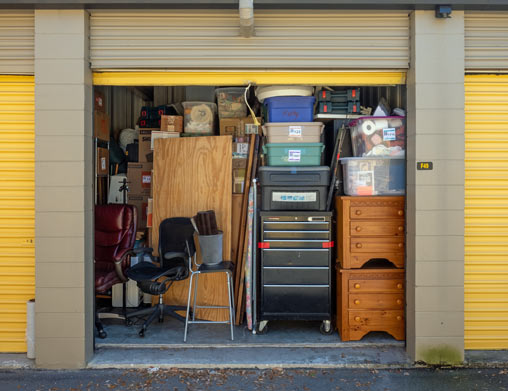
Packed storage unit DavidGales-PhotoShop March 19, 2024
By Roz Brown Reporter/Producer, New Mexico News Connection, a bureau of Public News Service.
Many people get rid of unwanted stuff in spring, but one New Mexico expert says it’s harder than it sounds for people addicted to buying or keeping things they don’t need.
Catherine Roster, professor of marketing at the University of New Mexico, has spent almost two decades researching clutter – or “excessive acquisition” – and people’s difficulty discarding things. Her research
shows more than half of all garages in the country are not being used to park cars – but instead, to store the residents’ clutter.
“We live in a culture of over-consumption – some have called it the ‘throwaway society.’ But it’s really not always just a throwaway society, because there are many individuals who have a difficult time throwing things away,” Roster said.
One study found that one-fifth of all Americans pay a monthly fee for a storage unit – on average $120 per month – and another 14% plan to rent storage in the future.
Difference between clutter and hoarding
Roster said those who live with excessive clutter should not be confused with hoarders because hoarders don’t see clutter as a problem.
Roster added many Albuquerque antique and secondhand store owners say they see the same folks every week – always looking for a bargain, or adding to a collection they already don’t have room for. Later, she noted, people have trouble deciding whether to get rid of items, even those without sentimental value, because they fear they’ll need them later. But as people age, Roster said, that can create a significant hardship for family members.
“We just really need to be mindful of the burden of the things that we’re carrying, not only for ourselves but for others. And to take the steps to start making more room in our lives for relationships, experiences – and less time with our ‘stuff,'” she explained.
She said for many people, acquiring more things is a mood enhancer – but the clutter it creates can cause anxiety. It can also lead to isolation since people living alone might feel embarrassed to have others over or feel the need to hide the clutter out of sight.


